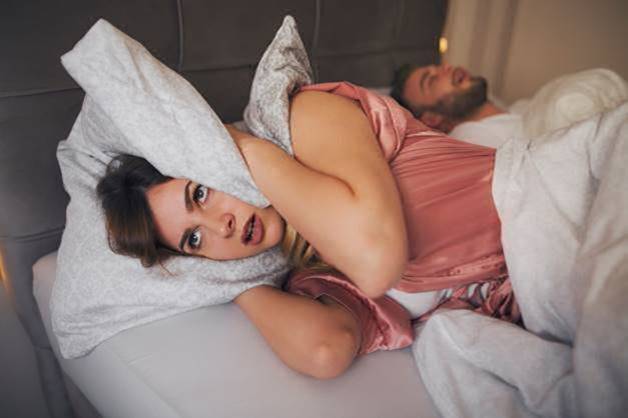68% of Brits unaware snoring can be a symptom of sleep apnoea – a potentially life-threatening sleep disorder

New research launched today from Sunrise, the home-based sleep test that sits on your chin to diagnose sleep apnoea and associated sleep disorders, reveals that more than two-thirds (68%) of Brits are unaware that snoring can be a symptom of sleep apnoea, which can not only lead to serious health concerns. Yet, 1 in 4 (29%) claim they snore to some degree and 1 in 10 say they snore all of the time.
The new findings uncover further sleep issues Brits are experiencing, all of which can be possible indications of sleep apnoea, with 66% saying they get up at night to urinate; 64% claiming they wake up throughout the night; almost half (49%) claiming they wake up in the morning tired; and 31% experiencing night sweats. Yet Brits are shown to be in the dark about sleep apnoea, with almost a quarter (23%) claiming they don’t even know what it is.
Despite studies showing that patients suffering from sleep apnoea are at greater risk of being hospitalised or dying from COVID-19, the new findings from Sunrise – the award winning tech start-up – highlight the extent to which Brits are unaware of the common possible symptoms of the sleep disorder:
Common symptoms of apnoea % of Brits unaware
Diabetes 95%
Sweating 92%
Heart conditions 91%
Waking up to urinate several times per night 89%
Headaches 87%
Mental health issues (anxiety, depression) 85%
Insomnia 80%
Snoring 68%
Waking up during night 68%
Daytime tiredness 67%
Breathing difficulties/feeling like choking at night 56%
The findings also uncover the extent to which snoring – whether their own or their partner’s – is affecting Brits, with 23% admitting that they are embarrassed by their snoring, and 1 in 5 claiming that it makes them tired. 40% say that they are frustrated by their partner’s snoring, with more than a third (37%) claiming that the disruption from their partner’s snoring leaves them feeling tired the next day.
Despite the prevalence of sleep issues, more than a quarter (26%) of Brits say that they aren’t worried enough to act on them. Furthermore, only 13% of Brits claim to have a sleep disorder. Even though a quarter of the nation (25%) say that they track their sleep with an app or sleep device, the top reasons for finding out about their disorder are due to their partner’s concerns (26%), followed by a family member being worried about how they slept (25%).
The findings also show a lack of action when it comes to addressing sleep concerns. Pre-COVID, almost two-thirds (64%) would not have contacted their GP about sleep issues, with 60% claiming that they wouldn’t even have done an online search. Post-COVID, almost three-quarters (71%) wouldn’t contact their GP, with more than half (55%) still claiming that they wouldn’t look up their issues online.




